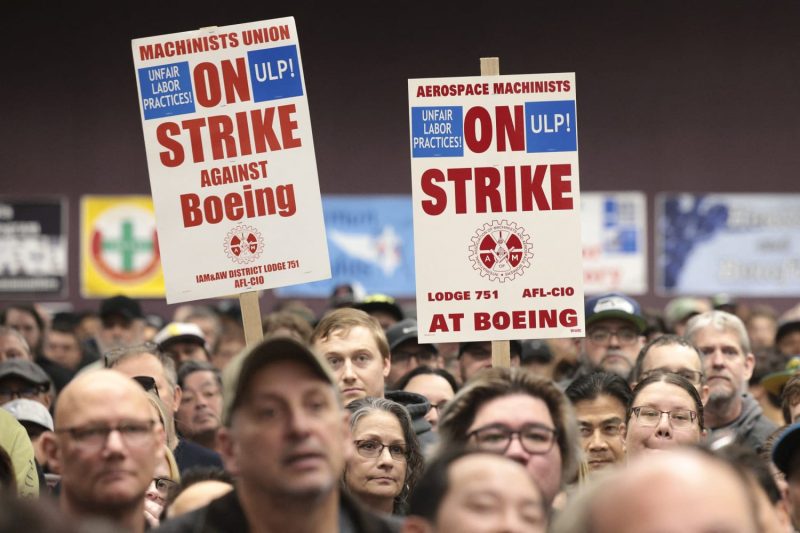In a recent turn of events, Boeing Machinists have made the bold decision to reject a new labor contract, thereby prolonging the strike that has already gained significant attention and momentum. The striking workers, who are members of the International Association of Machinists and Aerospace Workers District 751 (IAM), have chosen to stand their ground and continue their fight for improved wages, benefits, and job security.
This rejection comes at a critical juncture for Boeing, as the aerospace company has been grappling with supply chain disruptions, production delays, and heightened competition in the industry. The outcome of this prolonged strike could have far-reaching implications not only for Boeing but also for its employees, customers, and stakeholders.
The decision to reject the new labor contract underscores the deep-rooted dissatisfaction and frustration among the Boeing Machinists. Many workers have expressed concerns about the lack of meaningful progress in negotiations and the company’s apparent reluctance to address their pivotal demands. This rejection serves as a clear message to Boeing that the workforce is resolute in its pursuit of fair treatment and equitable compensation.
One of the key sticking points in the negotiations has been the issue of wages. The Boeing Machinists are seeking a substantial increase in pay to reflect the demanding nature of their work and the critical role they play in the company’s operations. They argue that their contributions to Boeing’s success warrant better financial rewards and greater job security.
In addition to wages, the workers have raised concerns about health care benefits, retirement plans, and working conditions. These are all essential components of a comprehensive labor contract that must be carefully negotiated to ensure the well-being and satisfaction of the workforce. By rejecting the proposed contract, the Boeing Machinists are signaling their determination to secure a better deal that addresses their core concerns and priorities.
The decision to extend the strike by rejecting the new labor contract comes with risks and challenges for both Boeing and the workers. The company will face continued disruptions to its production schedules, potential financial losses, and reputational damage as the strike prolongs. On the other hand, the workers will endure financial hardships, uncertainty about their future employment, and possible strain on their relationships with the company.
As the strike enters a new phase of uncertainty and tension, it is crucial for both parties to reengage in constructive dialogue and negotiations to reach a mutually beneficial agreement. The success of Boeing ultimately depends on the dedication and expertise of its workforce, and it is in the company’s best interest to address the legitimate concerns of its employees.
In conclusion, the rejection of the new labor contract by Boeing Machinists represents a pivotal moment in the ongoing struggle for fair treatment, respect, and recognition in the workplace. The stakes are high for both the workers and the company, and the outcome of this prolonged strike will have lasting implications for all parties involved. It is essential for Boeing and the IAM to find common ground and work towards a resolution that upholds the rights and interests of the workforce while ensuring the company’s competitiveness and sustainability in the aerospace industry.

